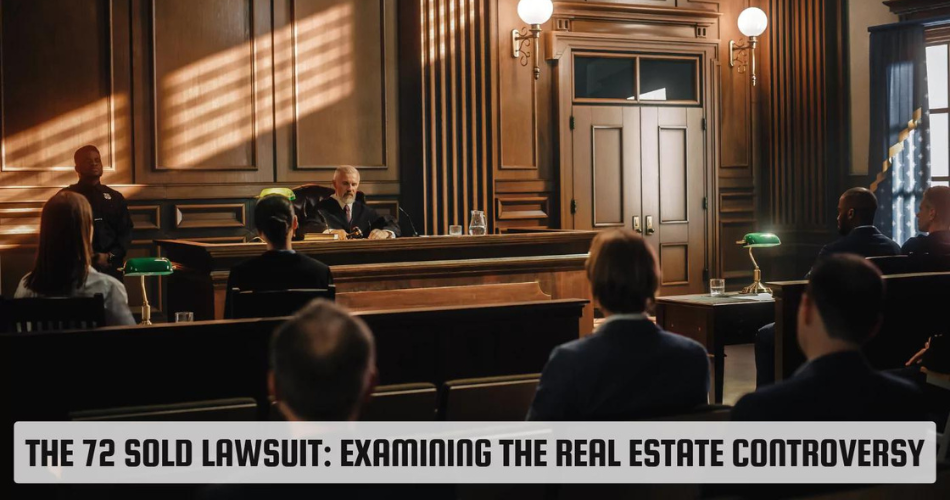In the heart of bustling downtown, where skyscrapers kissed the sky and neon signs flickered like distant stars, a legal battle unfolded—one that would forever change the lives of 72 individuals. These people came from all walks of life: a struggling artist grappling with the weight of unpaid bills and the uncertainty of tomorrow, a single mother juggling multiple jobs to provide for her children, a retired war veteran reflecting on a lifetime of service now overshadowed by the threat of losing his modest apartment, and a tech-savvy entrepreneur on the brink of launching a groundbreaking startup, but facing the looming prospect of losing the space where his dreams were taking shape.
Their lives were as varied as the cityscape itself, but they were united by a shared vulnerability—a looming legal dispute that jeopardized their homes, their dreams, and, indeed, their very existence. This dispute was not merely a matter of bricks and mortar but a clash of fundamental human values, touching on issues of fairness, justice, and the rights of individuals versus the relentless machinery of corporate interests.
The Genesis: Unraveling the Scandal
The 72 Sold lawsuit emerged from an initial promise of opulence and wealth. A well-known real estate developer, clad in sharp suits and armed with glossy promotional materials, painted an enticing picture of modern condominiums with stunning city vistas, rooftop gardens, and top-notch concierge services. Yet, the reality was starkly different. The twist was that existing residents—many of whom had cherished their apartments for decades—were abruptly forced to move out. The machinery was ready, and eviction notices soon appeared unceremoniously on doorsteps.
In the midst of this upheaval, one tenant, Mrs. Evelyn Montgomery, a steadfast elderly woman who had raised her family in her small apartment, stood firm. Her home, though modest, had been the backdrop for countless family moments—joys, sorrows, and memories. Determined to fight back, she galvanized her neighbors—a retired librarian, a jazz musician, and a spirited grandmother famous for her apple pies. Together, they formed the “72,” a powerful emblem of resistance against corporate exploitation.
The Battle Lines Drawn: David vs. Goliath
The courtroom was electric with anticipation as the 72 faced off against a formidable adversary— a developer supported by a top-notch legal team proficient in navigating contracts and exploiting legal loopholes. The judge, an imposing figure in dark robes, listened intently as the attorney representing the 72, Alex Turner, a passionate advocate known for his dedication to fairness, laid out their case. Turner spoke eloquently about the sense of community, the deep-rooted heritage, and the intangible connections that bound the residents to their homes.
As the trial unfolded, it became evident that this was no ordinary legal confrontation. Key pieces of evidence disappeared, witness testimonies wavered, and the developer’s lofty promises began to unravel under meticulous examination. Yet, the 72 remained resolute, their collective voice rising in a powerful call for justice. They were not merely defending their own homes; they were standing up for the rights of every individual wronged by powerful corporations.
The Turning Point: A Revelation in the Archives
In a dusty archive room, Mrs. Montgomery made a pivotal discovery—a weathered ledger that held crucial evidence. This ledger exposed the developer’s illicit activities: manipulating records, erasing tenants’ names, and embezzling millions from the project. This revelation transformed the narrative, showing that the 72 were not mere victims but key players in a high-stakes scheme driven by greed.
Equipped with this critical evidence, the 72 returned to court with renewed confidence. The truth was unveiled, and their resolve was unshakable. They had been underestimated, but now they were determined to prevail.
The Verdict: A Victory for the Underdogs
After an intense series of courtroom proceedings, the judge’s final decision marked a decisive moment in the case. The plaintiffs, known as the 72, emerged victorious, leading to the downfall of the developer’s once-thriving empire. The luxurious condominiums, once the developer’s pride, now stood empty and unsold, reflecting the strength and determination of the community. Mrs. Montgomery, overwhelmed with emotion, was comforted by her neighbors, who shared in the profound sense of accomplishment. The case, famously known as the “72 Sold Lawsuit,” became a symbol of justice and perseverance, inspiring others with its story of collective triumph.
Background of the 72 Sold Lawsuit
The lawsuit against 72 Sold, a well-known real estate company famous for its promise to sell homes within 72 hours, has shaken the industry to its core. The company has faced allegations of deceptive marketing practices and misleading advertising, raising serious questions about the validity of its claims.
Allegations Against 72 Sold
The lawsuit against 72 Sold centers around allegations that the company misrepresented the efficacy of its services. Plaintiffs claim that the company’s bold promise to sell homes within 72 hours was rarely fulfilled and that their promotional materials created unrealistic expectations. Many clients felt deceived and financially exposed due to the disparity between the company’s assurances and the actual outcomes.
Critics argue that 72 Sold’s advertising misled customers by setting expectations that were seldom met. Clients have reported that their homes were not sold within the advertised timeframe and that the terms affecting the sale were not adequately communicated, leading to dissatisfaction and confusion.
Legal Grounds and Proceedings
The legal case against 72 Sold involves several serious charges, including breach of contract, deceptive advertising, and violations of consumer protection regulations. The plaintiffs seek financial restitution for losses they believe resulted from the company’s misleading practices. They assert that 72 Sold’s promises were not upheld and that the company’s assurances were misleading.
In its defense, 72 Sold maintains that its marketing strategies were both legal and ethical. The company argues that the 72-hour sale guarantee was subject to specific conditions that were disclosed to clients. However, plaintiffs contend that these conditions were not clearly communicated, leading to widespread misunderstanding and dissatisfaction.
Impact on the Real Estate Industry
The 72 Sold lawsuit has highlighted critical issues within the real estate industry, prompting a reevaluation of marketing practices. The case underscores the need for greater transparency and honesty in real estate advertising, particularly when significant financial investments are involved.
Consumers have become more cautious in light of the lawsuit, recognizing the importance of thoroughly understanding the terms and conditions of real estate transactions. The case has drawn attention to the risks of relying solely on marketing claims without a full grasp of the underlying agreements.
Current Status of the Lawsuit
The lawsuit is ongoing, with industry experts closely watching its progress. The outcome could potentially lead to stricter regulations and increased scrutiny of advertising practices within the real estate sector. A favorable ruling for the plaintiffs might encourage real estate companies to adopt more transparent and cautious marketing strategies to prevent similar legal issues.
Real estate firms must ensure their marketing practices comply with legal standards, while consumers are advised to carefully review all aspects of their transactions, especially when promotional promises appear too good to be true.
Conclusion: Lessons from the 72
As the sun dipped below the city skyline, the 72 gathered one last time. They had reclaimed their homes and forged a bond that would last a lifetime. The 72 Sold Lawsuit serves as a powerful reminder that, even in the face of overwhelming odds, persistence can prevail. It is a story of ordinary people standing up against corporate giants, rewriting their own narratives, and refusing to be silenced.
Their victory was not just about winning a legal battle; it was a testament to community, resilience, and the power of human spirit. The next time you pass those condos, remember the 72. Their legacy is not just one of legal triumph but a legendary tale of courage and unity that continues to inspire others to fight for what they believe in.
Keep up-to-date with breaking news and updates on Englandinsider
